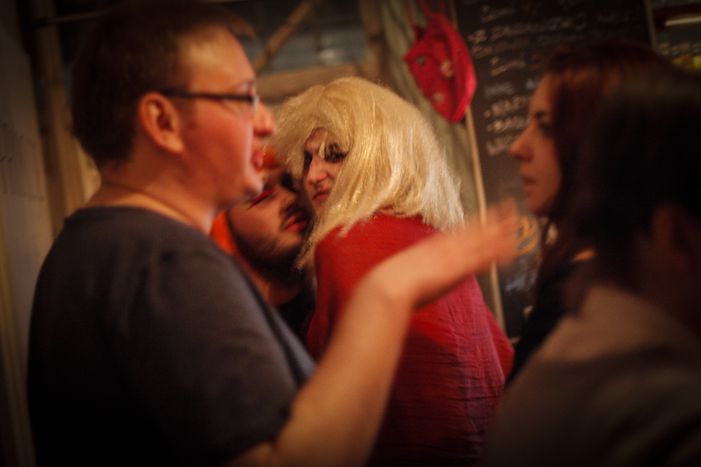
The LGBT Community in Krakow
Published on
Poland is one of the most challenging EU nations for the LGBT community. In the last three years one out of every three people has experienced violent threats or attacks, each case initiated as a result of their sexuality. We learnt more about the situation from Mikolaj Czerwinski, a young Polish activist fighting for LGBT rights.
To western Europeans, this aspect of Poland might seem unreal, like something out of a history book. Beyond its historic centre, the city of Krakow maintains an unyielding aspect, disciplined by its Soviet past but deluged by the hustle and bustle of modern day tourists and inhabitants alike. What is most surprising to a first time visitor is the sheer number of churches in the city, almost one on every corner, with a constant trickle of the pious passing through their doors.
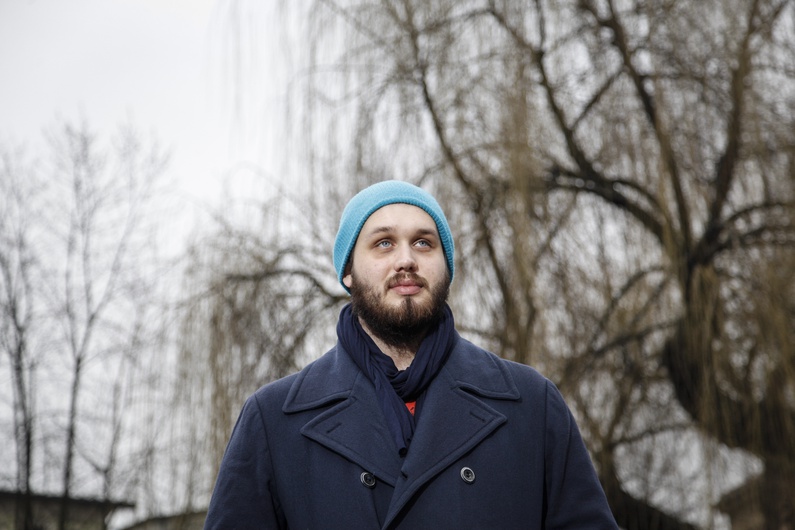
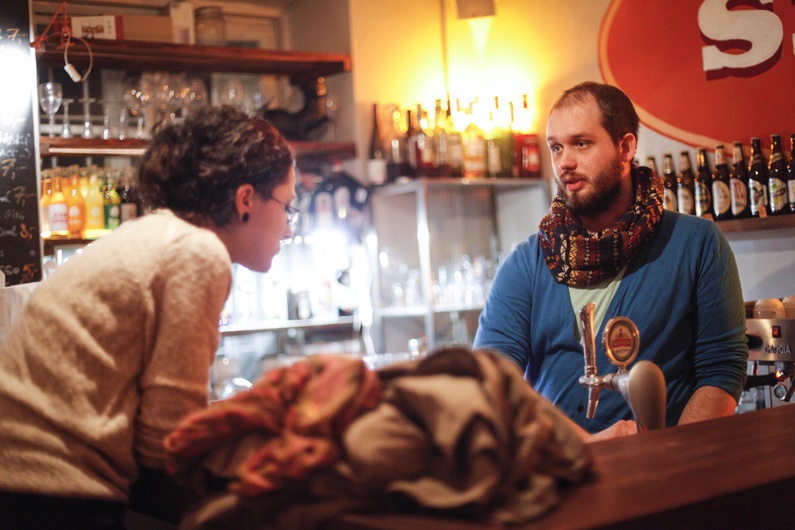 Mikolaj Czerwinski is a young gay activist fighting for the rights of the LGBT (lesbian, gay, bi- and trans-sexual) community in Krakow, via the Culture of Tolerance association. We met up with him in one of the few gay bars in the city, situated in the predominantly Jewish neighbourhood of Kazimierz. Upon entering, we are greeted by various neo-Nazi scrawlings on the outside doors. "Only two days ago a stranger insulted my partner and I, just two streets from here, for no apparent reason," he recalls in such a matter-of-fact way that it saddens us to hear. Mikolaj is of generous build and his gestures convey a calmness which sits at odds with the distressing situations he is describing. Formerly a mechanical engineering student in England, after which he spent time working in Africa, these days he juggles a bar job and studying for a course in Cultural Management. He is just 23.
Mikolaj Czerwinski is a young gay activist fighting for the rights of the LGBT (lesbian, gay, bi- and trans-sexual) community in Krakow, via the Culture of Tolerance association. We met up with him in one of the few gay bars in the city, situated in the predominantly Jewish neighbourhood of Kazimierz. Upon entering, we are greeted by various neo-Nazi scrawlings on the outside doors. "Only two days ago a stranger insulted my partner and I, just two streets from here, for no apparent reason," he recalls in such a matter-of-fact way that it saddens us to hear. Mikolaj is of generous build and his gestures convey a calmness which sits at odds with the distressing situations he is describing. Formerly a mechanical engineering student in England, after which he spent time working in Africa, these days he juggles a bar job and studying for a course in Cultural Management. He is just 23.
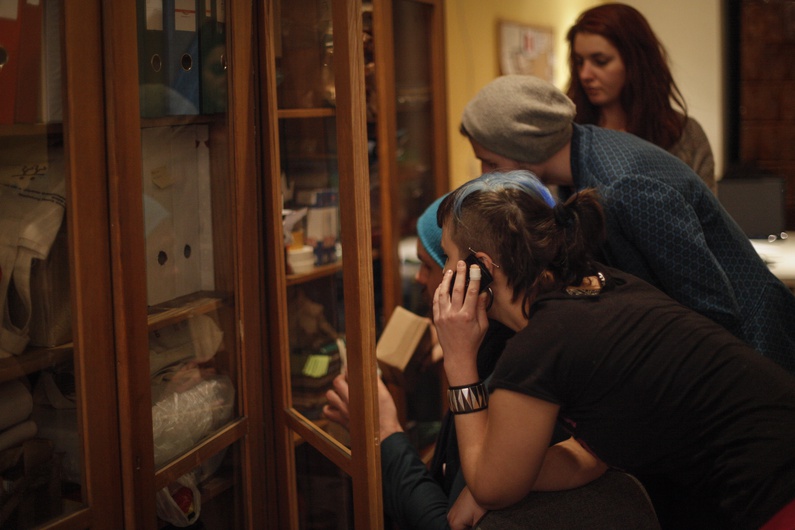
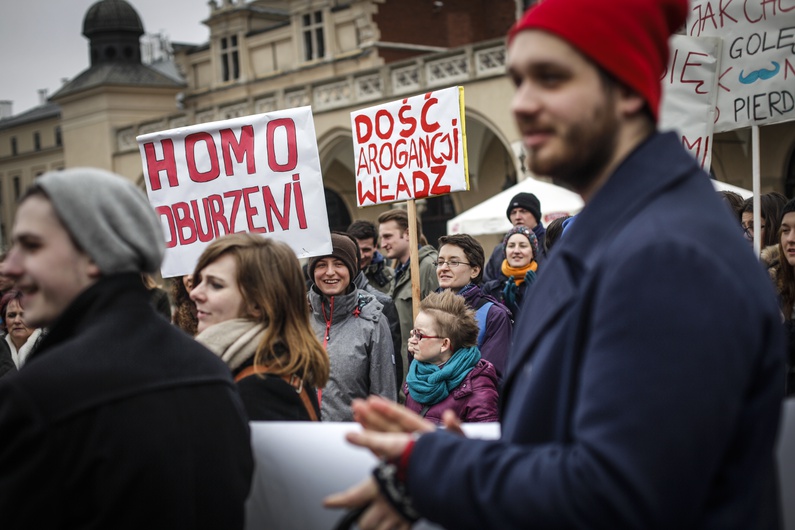 The LGBT community is the object of constant jibing and derision from political and eclesiastical types in Poland. According to Mikolaj, the simple fact of being alive is more than enough cause for criticism and attacks from a certain portion of Polish society. Kissing in public can cause uproar, or as happened with some of his friends, sexual orientation can be used as a sufficient reason to refuse someone hospital care. For two years, Mikolaj has been struggling for LGBT rights, participating in various queer associations and campaigns at an international level. Along with two of his campaign colleagues, Mikolaj is also fighting to alter the course of things from the platform of his youth association, Culture of Tolerance.
The LGBT community is the object of constant jibing and derision from political and eclesiastical types in Poland. According to Mikolaj, the simple fact of being alive is more than enough cause for criticism and attacks from a certain portion of Polish society. Kissing in public can cause uproar, or as happened with some of his friends, sexual orientation can be used as a sufficient reason to refuse someone hospital care. For two years, Mikolaj has been struggling for LGBT rights, participating in various queer associations and campaigns at an international level. Along with two of his campaign colleagues, Mikolaj is also fighting to alter the course of things from the platform of his youth association, Culture of Tolerance.
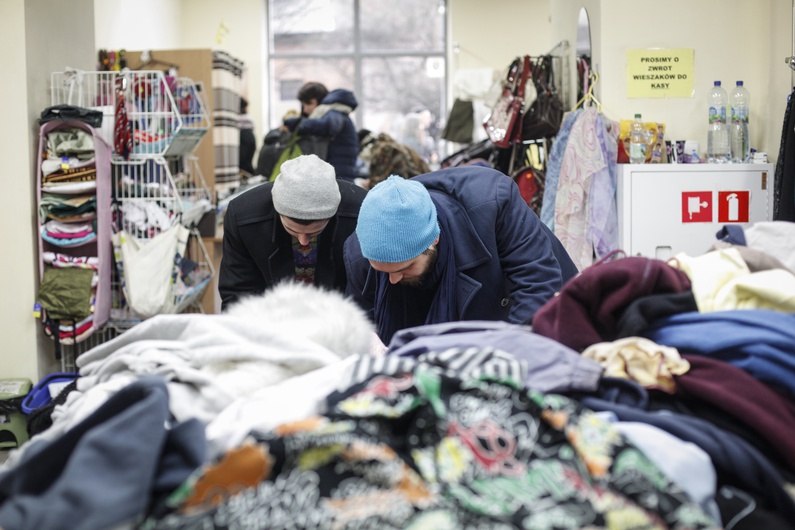
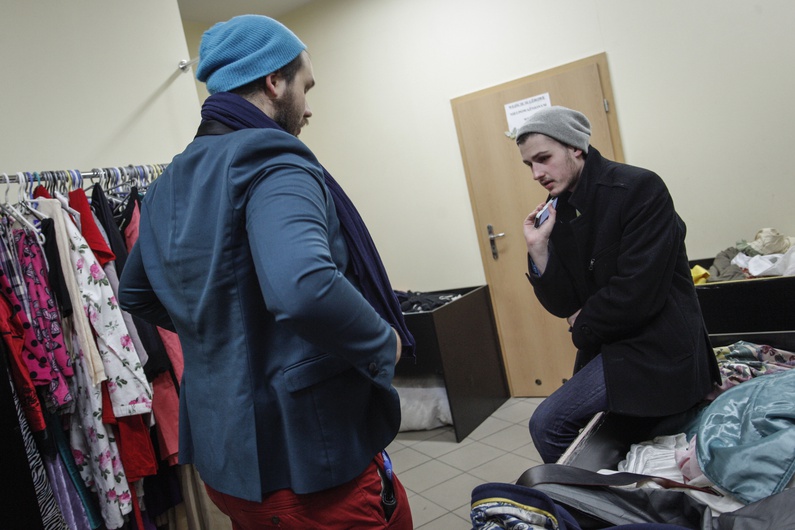
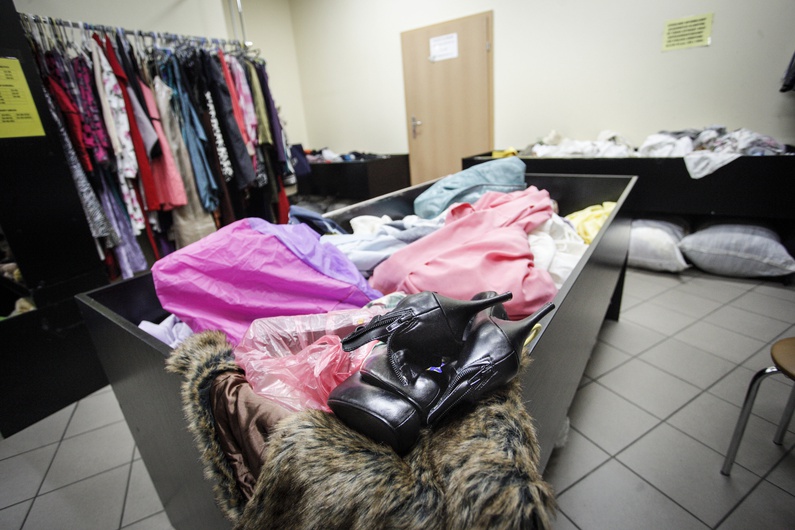 The conservative, religious spirit which pervades most of this country's society obviously makes it a challenge to normalise the LGBT 'situation'. According to recent studies on this issue by the EU's Fundamental Rights Agency (FRA), 35% of people surveyed had been subjected to aggression or hostile threats as a direct result of their sexual orientation. In 66.7% of cases of psychological violence, the police did not intervene. In a report entitled Situation of LGBT Persons in Poland – 2010-2011, one of the investigations found that around 40% of people who were physically attacked had been attacked on more than three occasions. It also highlighted the fact that 70% of the surveyed population are too afraid to show their sexual orientation at school or at work, for fear of being discriminated against. 38% had considered suicide as an option at one time or another.
The conservative, religious spirit which pervades most of this country's society obviously makes it a challenge to normalise the LGBT 'situation'. According to recent studies on this issue by the EU's Fundamental Rights Agency (FRA), 35% of people surveyed had been subjected to aggression or hostile threats as a direct result of their sexual orientation. In 66.7% of cases of psychological violence, the police did not intervene. In a report entitled Situation of LGBT Persons in Poland – 2010-2011, one of the investigations found that around 40% of people who were physically attacked had been attacked on more than three occasions. It also highlighted the fact that 70% of the surveyed population are too afraid to show their sexual orientation at school or at work, for fear of being discriminated against. 38% had considered suicide as an option at one time or another.
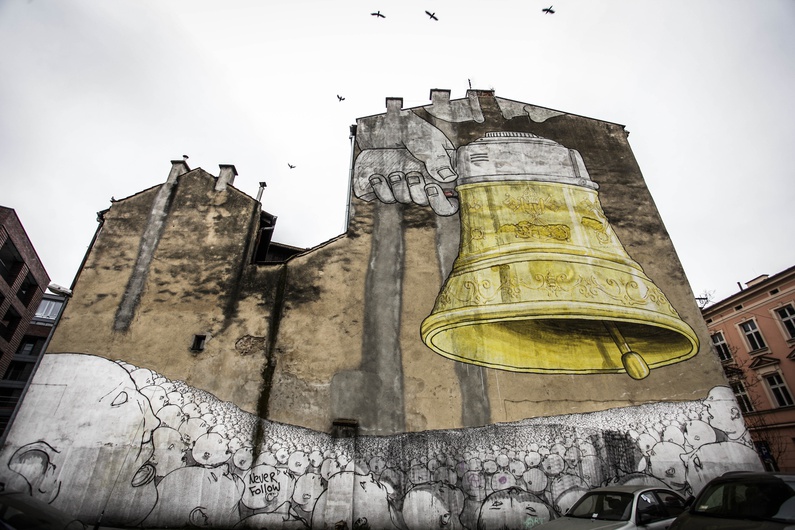
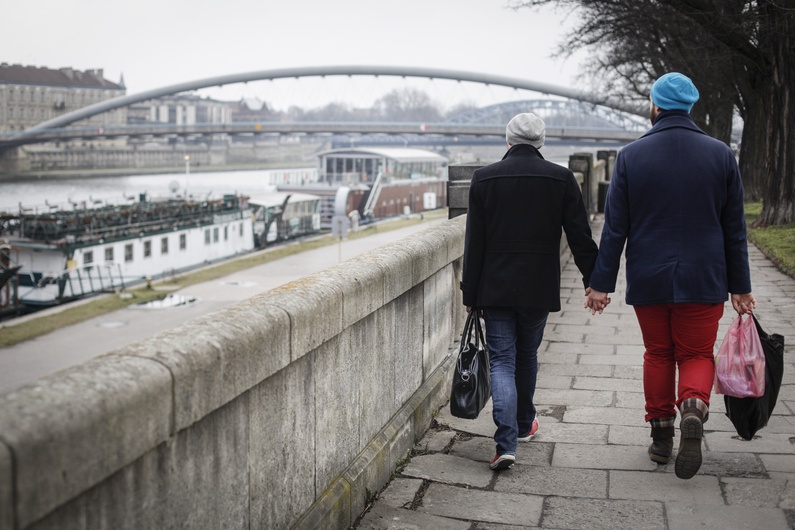 Since Poland joined the EU and moreover with the change of government — whereby the conservative coalition moved aside for the current, centre-right prime minister Donald Tusk — the situation has improved slightly. Nevertheless, it clearly remains rooted in complications. Mikolaj's life has been transformed into one of constant battle, like that of any activist, fueled by his beliefs and determination to defend a most basic human right: mutual respect. This sort of dedication might one day lead to positive changes in Polish society, on a fundamental and preferably permanent level.
Since Poland joined the EU and moreover with the change of government — whereby the conservative coalition moved aside for the current, centre-right prime minister Donald Tusk — the situation has improved slightly. Nevertheless, it clearly remains rooted in complications. Mikolaj's life has been transformed into one of constant battle, like that of any activist, fueled by his beliefs and determination to defend a most basic human right: mutual respect. This sort of dedication might one day lead to positive changes in Polish society, on a fundamental and preferably permanent level.
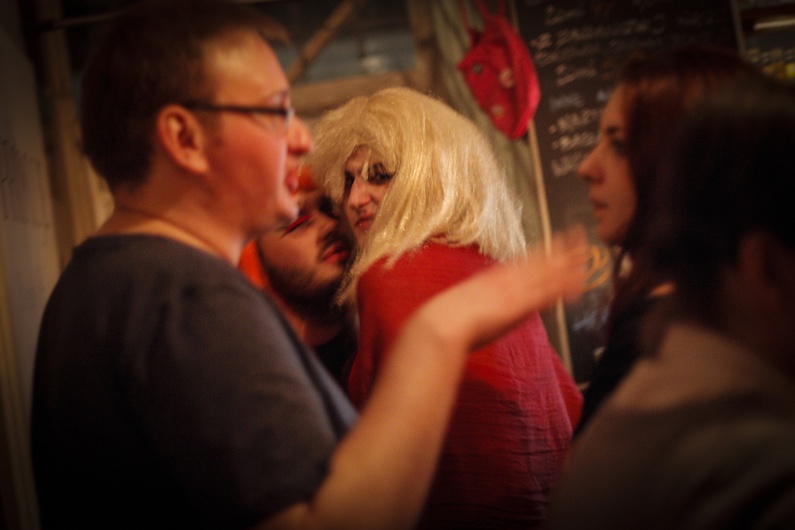
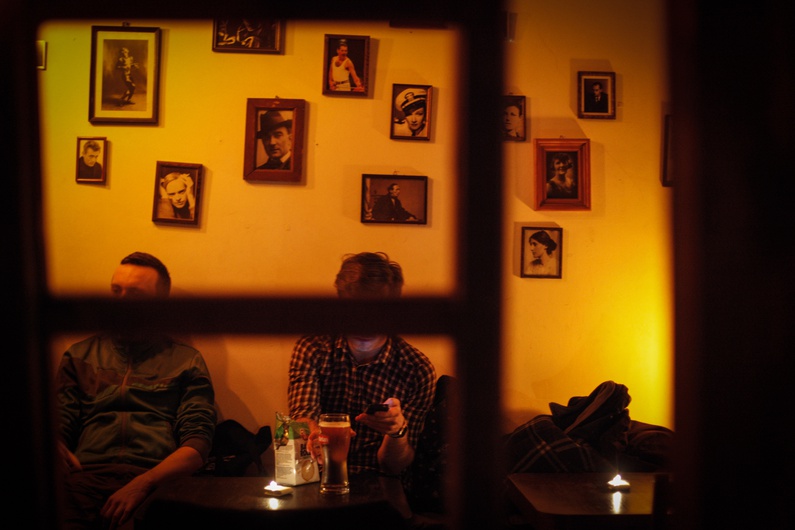
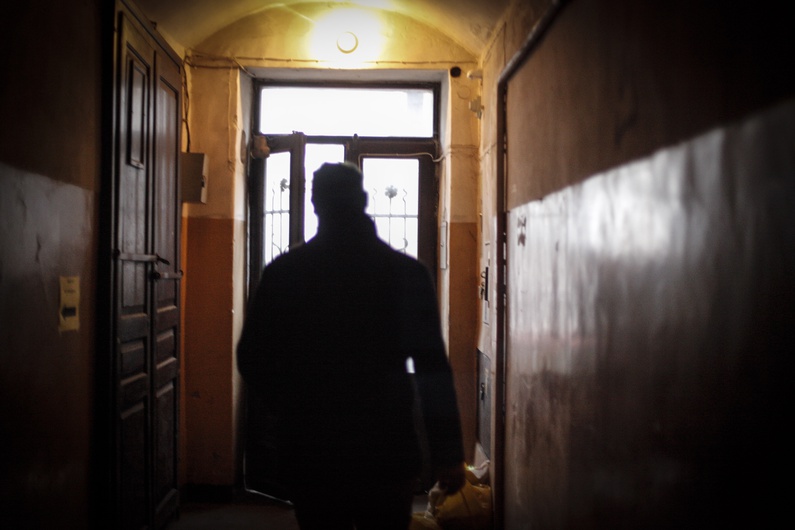
This article is part of a special series devoted to Krakow. It's part of eu-topia: time to vote, a project run by cafébabel in partnership with the hippocrène foundation, the european commission, the ministry of foreign affairs and the evens foundation.


Translated from Un día en la resistencia LGBT de Cracovia



